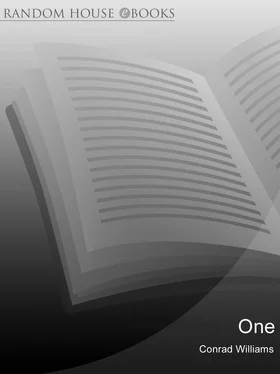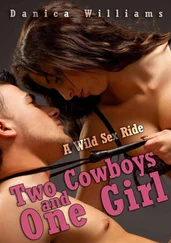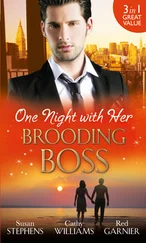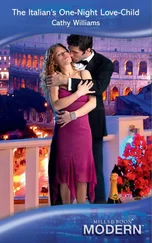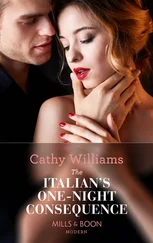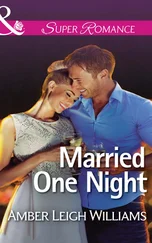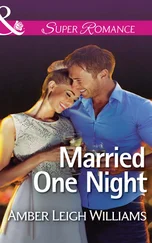The day passed quicker when he was intent on the road. He bypassed Haggerston with barely a glimpse at its castle. Further east lay the causeway connecting Lindisfarne to the mainland. The Holy Island was beyond reach now. The sea would have erased that link for ever. Maybe the island itself was drowned. He looked through the binoculars but could only see a riot of ocean and sky, as if the two elements were wrestling over a prize. He walked on, developing his rhythm. He started chanting Stanley's name, and his own, and Cherry's too. A triumvirate to spur him on, even though he knew there were only ever likely to be limited permutations of the three by the time he found them. But you never knew . . . a national disaster, a child in peril, estranged parents reunited. It happened all the time in Hollywood.
Stan-ley, Cher-ry, Rich-ard. Stan-ley, Cher-ry, Rich-ard. Stan-ley, Cher-ry, Rich-ard .
As a child he'd attended Scouts a few times. Hadn't stuck it. There was something about uniforms after school that sapped the enthusiasm from him. That and the dumb tasks they set at this particular hut: you and two friends are going on a three-day camping expedition, so how many boxes of cornflakes are you going to need? He had to get home by himself afterwards if his dad was on nights and had the car. He'd alleviate the monotony of a long walk back in the dark, often accompanied by rain, by doing the Scout jog, which was twenty paces running, twenty paces at a fast walk: the fartlek before its time.
Stan-ley, Cher-ry, Rich-ard. Stan-ley, Cher-ry, Rich-ard. Stan-ley, Cher-ry, Rich-ard.
Jane was intoxicated by the distance he'd managed. His heart was pumping hard and he was alive. He was alive. He stopped to rest and lifted the Nikon glasses to sweep the area south of Alnwick. Newcastle was a knot of wet iron in the distance. He could make it in maybe four days, if he marched hard. The road was not flat, but it was not so undulating or jagged as to hamper him too greatly. The dried meat and dried fruit he had found in a farmhouse cellar was keeping his spirits up; he'd even lucked upon a couple of slabs of dark chocolate in a tin marked IZZY'S STASH – KEEP OUT! He wasn't wanting for energy. But finding such food, such good food, made him wonder a little about the future, despite his intention to keep himself focused on the present. The vegetation frazzled, the food chain compromised. No animals. No food. How much of this kind of thing was going to be buried treasure in the months and years to come? He could see himself stumbling, cadaverous, through villages, his clothes flapping on him, too weak to unscrew the top from an undiscovered jar of jam he might come across in a forgotten pantry. What about water? An image, unbidden, of vultures sitting on the shattered street lamps of Oxford Street, the birds' beaks stained crimson. An image of himself, a scarecrow, shambling beneath their keen eyes, calling out for his family, calling out for anybody, but there was nobody left. Just six million corpses mummifying in the furnace blast of a storm that would not cease.
Jane forced his thoughts outward, and his eye caught the feather nestled into his rucksack. No birds. No nothing. No people.
He snatched up the feather and studied it. He retrieved the guidebook and savagely flicked through the pages, looking for something that might help him identify its provenance. The pictures of birds calmed him, even though he knew they were eternally trapped between these pages, that he'd catch no sight of them here. A big wedge-shaped feather it was, edged with broad sections of creamy white. He held it to his cheek, felt the fragile, firm ruffle as he ran his fingers along its edge, then tried to scent something of the bird via the quill, but there were no smells beyond that of the burned, congealed sky.
He thumbed through the book until he found the large predators. He had to look away from some of the pages, the ones of photographs of raptors rending their prey. The slashing talons, the hooked razor beaks. The eyes were the worst, though. Angry, feral; alien colours. Piercing. He had always been squeamish. Jane tried to imagine being the focus of that unswerving attention as an eagle came at him, claws outstretched, great wings spread in some sacrilegious cuneiform aping, but thankfully it kept sliding away at the crucial point.
He found what he was looking for. The white tail. A yellow beak. Insane, intent eyes. Even as the rain squirmed across the paper, discolouring it, he read that the sea eagle was either a dedicated loner or a loyal partner. Once hunted to extinction in Scotland, it was now mainly confined to the west coast, having been reintroduced to the countryside in the latter decades of the twentieth century. So what was it doing here, east coast, many miles south of its natural habitat? He must have made a mistake, but the diagram of the feather in the book might have been a copy of the real thing clenched between his fingers. An ornament in a hotel room. That was all. A gewgaw. A knick-knack.
It was placed there for you.
Jane dropped the feather suddenly, as if it had turned hot. He stared at it and thought about what he'd just suggested to himself, what that might mean if it was true. Then he picked it up and threaded it back through the elastic ties of his rucksack. It seemed somehow profane to leave something so beautiful to decay into this grim landscape. Gift or find, he would keep it. Perhaps it would bring him luck. At the very least it would make an exciting present for Stanley.
He walked until the low cloud definition began to increase. Shadows building. The sun going down. He remembered flights out of gloomy airfields penned down with rain. Jets jostled by weather, nosing for the cloud banks. The fog of them, dense against the windows, then the sudden break into astonishing, lovely blue. He thought now of a cloud cover without break, constantly mashing and folding against itself as it greedily smothered the world. Which way was this going? Nuclear winter or greenhouse? He realised he'd stopped walking. He was staring at the underbelly of cloud and its greasy gamut of colours. They changed as if inspired by moods. His, maybe. Industrial colours sometimes, alchemic: a range of molten smoky hues. Burnt gold, white-hot slag, the cold blue of steel. Sometimes the colours of pathology, of disease. Or mildew and smog, oil slicks and blood. They contained a look of something seriously damaged that could not be fixed. The rain that slashed out of them was muddy orange, like rust in water. He had to keep swiping the back of his gloves across the black Os of his goggles; his view was perpetually gritty, streaked. He wondered how long the rain would take to eat through the lenses.
And then he saw that he could not see because he was crying. He had to bend down, to rest on his knees, otherwise the shaking in his body was going to topple him over. He unshouldered the rucksack and let it fall to the floor. The sudden sense of liberation, the lightening at his shoulders, highlighting the claustrophobia he was feeling. He couldn't breathe. He ripped off the bicycle mask and the goggles. The wind driving into his face was delicious. He tore off his shirt and trousers, kicked away his boots. He ran naked through the slime of dead grass, angling up along a line of rocks embedded in the mud like rotted teeth in a black gum. He was crying and screaming and howling. The jouncing glasses on their strap around his neck cracked him hard in the chin and he tumbled, off balance, fetching up three feet away from the elongated rictal skull of a sheep, its hollowed eye sockets brimming with mud and rain. His breath flew from him; he scooted back on his knees. Mud oozed through his splayed fingers, stark white against the bruised earth like fallen stars.
He stood up, the wind instantly punching into him. He felt the rain already, stinging at his flesh, tasting him. He put his hands on the barrel of the binoculars and raised them to his eyes. He performed a slow, clumsy pirouette. He never completed it.
Читать дальше
